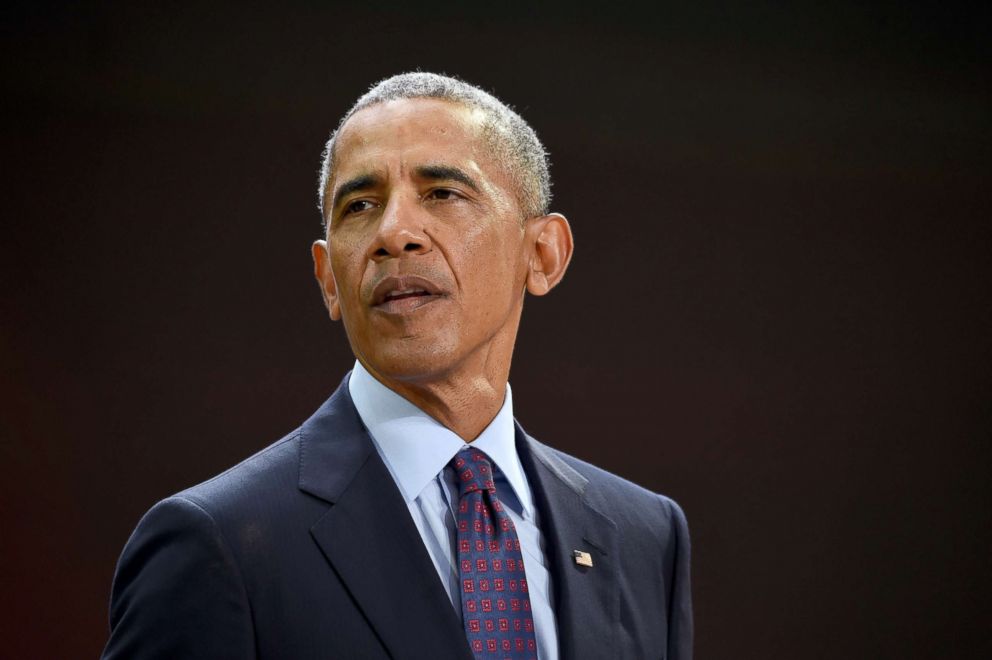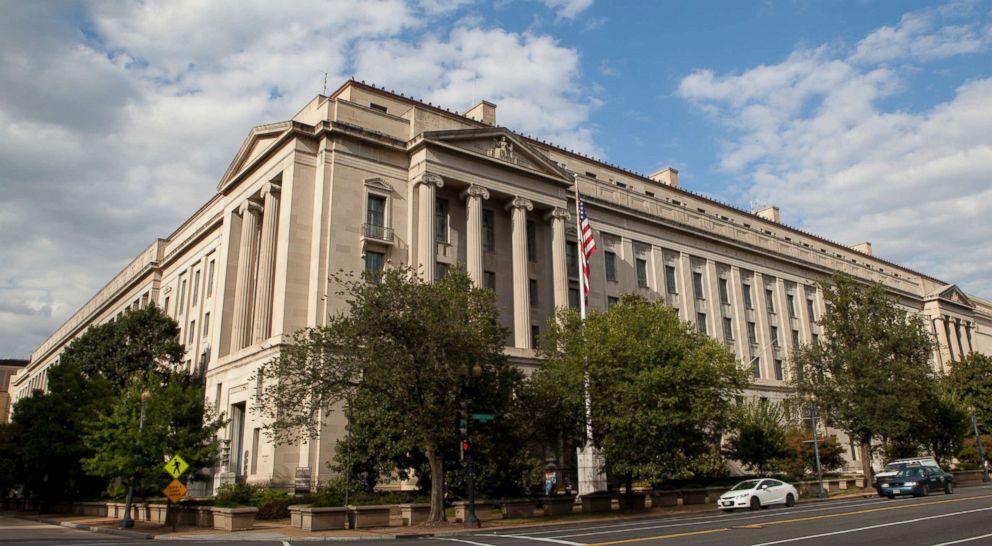White House says Rosenstein agrees to Trump 'demand' DOJ investigate whether campaign 'infiltrated'
Trumped tweeted that he'd ask if the Obama administration ordered surveillance.
President Donald Trump met Monday at the White House with Deputy Attorney General Rod Rosenstein and FBI Director Christopher Wray a day after he tweeted that he would "demand" the Justice Department investigate whether his 2016 presidential campaign was improperly "infiltrated or surveilled" for political purposes by an alleged FBI informant.
Neither Rosenstein nor Wray spoke after the meeting.
But White House press secretary Sarah Sanders issued a statement indicating that while Trump may not have gone as far as he could have – agreeing to fold his demand into an existing probe – Rosenstein and the others had acceded at least in part to Trump's order, something some critics were calling inappropriate interference.
"Based on the meeting with the President, the Department of Justice has asked the Inspector General to expand its current investigation to include any irregularities with the Federal Bureau of Investigation’s or the Department of Justice’s tactics concerning the Trump Campaign. It was also agreed that White House Chief of Staff Kelly will immediately set up a meeting with the FBI, DOJ, and DNI together with Congressional Leaders to review highly classified and other information they have requested," Sanders said in the statement.
It was noteworthy that while congressional leaders were going to be allowed to review the secret information, the White House was still not calling for the pertinent documents to be surrendered to Congress as some Republicans have demanded.
In his Sunday tweet, the president said he would make the order official on Monday but offered no further details about what form he would expect such an inquiry to take.
Trump added that he'd ask whether "any such demands or requests were made by people within the Obama Administration."


Later Sunday, Rosenstein issued a statement saying, “If anyone did infiltrate or surveil participants in a presidential campaign for inappropriate purposes, we need to know about it and take appropriate action."
"The Department has asked the Inspector General to expand the ongoing review of the FISA application process to include determining whether there was any impropriety or political motivation in how the FBI conducted its counterintelligence investigation of persons suspected of involvement with the Russian agents who interfered in the 2016 presidential election," Justice Department spokeswoman Sarah Isgur Flores said in a statement.
"As always the Inspector General will consult with the appropriate U.S. Attorney if there is any evidence of potential criminal conduct," Flores said.
Monday afternoon, Senate Democratic Leader Chuck Schumer blasted the president.
"That he would issue such an absurd and abusive demand based on no evidence shows just how little regard the president has for the rule of law," Schumer said on the Senate floor.
Later Monday, Schumer took issue with the arrangement outlined by the White House.
“The White House plan to arrange a meeting where ‘highly classified and other information’ will be shared with members of Congress is highly irregular and inappropriate. The president and his staff should not be involved in the viewing or dissemination of sensitive investigatory information involving any open investigation, let alone one about his own activities and campaign," Schumer said in a statement.
“However, if such a meeting occurs, it must be bipartisan in order to serve as a check on the disturbing tendency of the president’s allies to distort facts and undermine the investigation and the people conducting it,” he said.
A conservative Republican who has been pressing for an outside counsel if the DOJ didn't turn over documents to Congress wasn't happy either.
“I applaud the President’s leadership and push for transparency, and I hope the Department of Justice will follow suit by making the relevant documents available to Congress," Rep. Mark Meadows, R-N.C., said in a statement. "While a referral to the Inspector General is a step in the right direction, the Department has an obligation to comply with Congressional requests for oversight. Their attempt to circumvent this responsibility will not go unnoticed.”
A spokesman for House Intelligence Committee Chairman Devin Nunes declined to comment, and Nunes ignored questions from reporters at the Capitol Monday evening, according to CNN.
The top Democrat on the committee, Rep. Adam Schiff, D-Calif., who learned of the meeting from the Sanders statement, says he has no idea what materials will be made available to lawmakers and expressed concerns over the DOJ apparently giving in, at least partially,to GOP lawmakers' demands.
"If this is the same materials that the Department of Justice and FBI expressed such a great concern over that could put lives at risk, that could compromise relationships with foreign partners, then why are they capitulating? Why have those concerns gone away, because if they haven't then they shouldn't be providing this information," he said.
Schiff said he's also worried about Kelly's potential role in the meeting.
"It's unclear from the statement whether the chief of staff is going to participate in this meeting or is just going to arrange the meeting. Rudy Giuliani made it clear today that he wants these documents for the Trump legal defense team. That is not appropriate and I'd be concerned about anyone from the White House being present for the review of these sensitive documents because the White House should have no role in accessing investigative materials."
The president's Sunday tweet is the latest escalation by the president in fueling an assertion that the Trump campaign may have been spied on by the Federal Bureau of Investigation or the DOJ. President Trump has sent out a series of tweets in recent days advancing the accusation first voiced by some conservative commentators that the FBI had a spy in the Trump campaign.
The Washington Post and New York Times have reported in recent days that the FBI sent an informant to talk to several Trump campaign aides during the 2016 election. The Times cited unnamed sources that these contacts were made only after the FBI had gathered information that the informant’s targets had made suspicious contacts with Russians during the campaign.
The reports do not assert that there was an informant embedded inside the campaign or that the informant ever acted improperly.
On Saturday, the president in a tweet also called for the congressional review or release of classified DOJ documents that have been sought by House Intelligence Committee Chairman Nunes "regarding a specific individual," according to a letter the Justice Department sent to Nunes rejecting his demand for the information earlier this month.
In rejecting Nunes' request, the Department of Justice warned that the disclosure of such information "can risk severe consequences, including potential loss of human lives."
ABC News' Benjamin Siegel, Mariam Khan, Mike Levine and Matthew Mosk contributed to this report.




